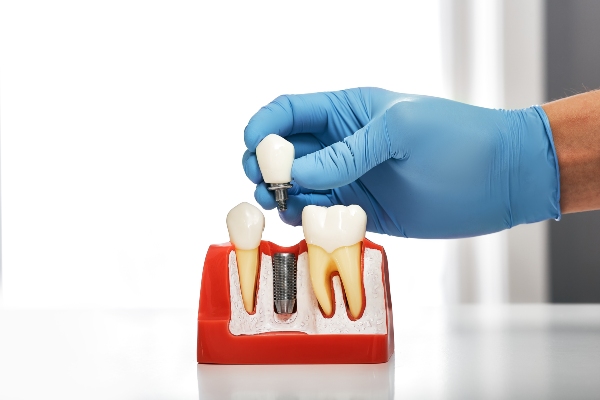Your Questions About Professional Dental Teeth Cleaning Answered

Teeth cleanings are an important part of maintaining good oral health because they ensure the removal of plaque and tartar, both of which can lead to serious damage to the gums and teeth. Thankfully, general dentistry services include routine teeth cleanings twice a year or more frequently, depending on preference and needs.
Questions and answers about teeth cleanings in general dentistry
When considering a regular teeth cleaning, it can be helpful to review the following information, which outlines answers to common questions on the subject.
1. How often should individuals undergo a teeth cleaning?
General dentists recommend that individuals of all ages undergo a teeth cleaning twice a year or every six months. However, there are certain scenarios in which teeth cleanings should be undergone more frequently. Individuals who are at a high risk of developing gum disease or cavities may be recommended to get teeth cleanings every three months or four times a year. Additionally, those with braces may be advised to get a teeth cleaning every other month, as their teeth and gums are harder to reach during oral hygiene.
2. Does a teeth cleaning hurt?
There should not be any pain during or after a teeth cleaning. However, some individuals experience slight sensitivity, which is completely normal. If sensitivity lasts more than 24 hours, it is best to use a special mouthwash or toothpaste.
3. Is there anything special to do after a teeth cleaning?
There is not any special to do after a teeth cleaning appointment. It is recommended to avoid eating or drinking for 30 minutes, but outside of that, individuals are free to do as they please. If any sensitivity is experienced, then it may be best to avoid hot or cold foods and beverages for a day or so until the sensation subsides.
4. What happens during a teeth cleaning appointment?
During a teeth cleaning, individuals can expect to have their teeth flossed, brushed and polished. The hygienist will use professional dental instruments and strong products to thoroughly clean the teeth. Some teeth cleaning appointments will also include X-rays, an examination and fluoride application, all of which encourage good oral health.
5. Will cavities form without a teeth cleaning?
While at-home oral hygiene can keep the teeth in good shape, it does take the expertise of a general dentist in order to properly remove all plaque and tartar. If routine teeth cleanings are not maintained, then the teeth become extra prone to plaque buildup, which can lead to the development of cavities. Plaque and tartar tend to live along the gumlines, and when they are not removed on a regular basis, the gums can become infected.
Get started with a teeth cleaning
Regardless of age, it is necessary to undergo a teeth cleaning at least twice a year or every six months. To get started with an appointment or to learn more, reach out today!
Request an appointment here: http://www.riversdentistry.com or call Rivers Family Dentistry at (979) 710-2216 for an appointment in our Bryan office.
Check out what others are saying about our services on Yelp: Read our Yelp reviews.
Related Posts
Clear braces and aligners are discreet, effective orthodontic treatments. However, they take different approaches, resulting in different patient experiences. Clear braces use frosted wires and ceramic brackets that remain fixed to the teeth, while clear aligners are removable trays worn throughout the day. These differences impact everything from aesthetics and comfort to your daily routine,…
Dental implants may be the answer if you are looking for a long-lasting alternative to dentures. Whether one, a few, or all the teeth are missing, an implant dentist can restore your smile. This blog will explore what to ask an implant dentist before getting implants.Traditional dentures are a great option for people who are…
Seeing your family dentist for regular dental exams can maintain your oral health for many years. Bringing your family with you can extend this benefit to them. Understanding why you must set dental checkups will enable you to maintain a healthy smile for years. Here are the reasons to see your family dentist for regular…
If you have lost one or more of your teeth, talking to an implant dentist might provide the tooth replacement solution you are looking for. Dental implants are one of the most popular ways to replace missing teeth. Whether you are missing one tooth or all of your teeth, chances are there is an implant…


